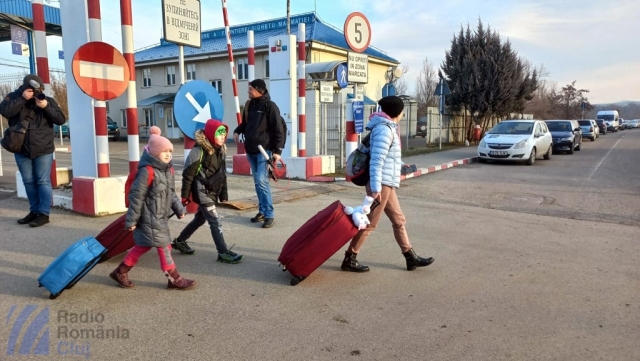The 100-day war in Ukraine
Ukrainians have been fighting invaders for 100 days now and the country is bracing up for a war of attrition with Russia

Roxana Vasile, 03.06.2022, 14:00
Thousands of civilians killed and wounded, millions of
refugees, destroyed cities – this is what Ukraine looks like 100 days on from
the onset of the conflict. Europe has been destabilized (as if the pandemic
wasn’t enough) and the EU has approved six sanction packages against Russia.
The global geo-political order has been disturbed and the international economy
weakened.
All this time, a defiant Kremlin leader has been waging
his war against the Ukrainians. Russia has so far occupied 20% of the territory
of Ukraine, whereas the latter is presently investigating 15 thousand alleged
war crime cases. Right at the beginning of the war the country’s capital Kyiv
was heavily bombed but could not be conquered. On March 2nd, the
city of Kherson, close to Crimea, a region previously annexed by the Russians,
became the first big city occupied.
Bilateral political talks don’t seem to have a
positive outcome and pictures with the killings in Bucha have been given a wide
coverage by international media. The city of Mariupol connecting Crimea with
the breakaway regions in the east of the country fell after fierce fighting
inside the Azovstal steelworks.
Ukrainian president Volodymyr Zelensky has been constantly
sending messages to encourage his troops and has called for international
assistance. The USA, G7, NATO and the European Union ran to the help of Ukraine,
concurrently closing ranks in the event of a war. Ukraine wants to join the EU
whereas Sweden and Finland call for NATO accession. Ukraine’s massive cereal
crops can no longer be exported and a major food crisis is looming large
particularly for the world’s poorest nations.
An opinion poll recently conducted among the Romanians
shows that over 71% of the respondents are blaming Russia for the war in
neighboring Ukraine while over 87% believe that Russian leaders should be
convicted for war crimes. 65% of the interviewees considers the deployment of
NATO and US troops as something good.
Respondents have shown a pro-West, pro-NATO attitude, in
line with the strategy the EU and the entire Euro-Atlantic zone is promoting
these days, pundits in Bucharest believe while the Romanian government
continues to take measures to support the refugees. Authorities here have recently
held talks over a national plan aimed at assisting Ukrainians in finding jobs,
accommodation, sending their children to schools so that they may learn Romanian
and get quickly integrated. The government has made available an information
platform for the refugees seeking temporary assistance amid a wave of sympathy the
Romanians have shown for the refugees ever since the beginning of the war.
(bill)






























